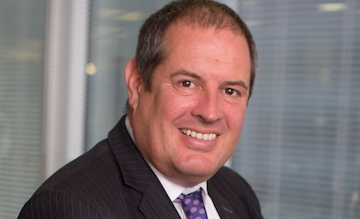The most important aspect of Financial Planning is giving clients access to the right advice at the right time and in the right place, Bellpenny’s new chief executive has said.
Nigel Stockton, who has taken over the helm from Kevin Ronaldson, has spoken about his views on Financial Planning, the FCA, robo-advice and other topical subjects in an exclusive interview with Financial Planning Today.
The Financial Planning firm employs 77 Financial Planners and 41 Paraplanners.
Financial Planning Today: What is the most important aspect of Financial Planning in your view?
Nigel Stockton: Making sure all people have access to the right advice at the right time and in the right place. Not everyone wants, needs - or can necessarily afford – face-to-face advice. It is up to the client to decide whether they want online, phone or face to face. It is our job to provide all of these channels and let our clients decide which route they want to take. One thing I learned from the mortgage industry is that you need to provide all channels and let the customer decide whether and how they want to be served – branch, broker, phone, web etc....
What is the most important characteristic and skill for a Bellpenny Financial Planner to possess?
To listen properly and to ensure the advice given meets the client. Of course that isn’t just true of Bellpenny it is true of our industry as a whole.
Do you expect to see many more changes to pensions over the next few years and if so what?
I’ve seen plenty of far-better-qualified people than me make statements and be completely wrong, particularly in the last couple of years. So I think I’ll politely pass on making bold predictions! I do however, suspect that my central thought that it will become more incumbent on the industry to provide cost effective advice for all clients won’t be far wide of the mark.
If, for example, advice businesses decide they can’t afford to give face to face service to anyone with a pension pot of less than £50,000, it is up to us as an industry to work out ways in which we can help people, using different, more cost-effective channels.
What are your views on the changes to IHT and would you like to see more done on this?
I’m in the camp that if you have earned and built your money over a long period and paid your tax then I am not in favour of, effectively, imposing an additional tax on success. I’m also not in favour of constant tinkering - and pension regulation certainly seems to have headed down this road of late. Make the right call, then leave it alone is a simple model to work to whether in IHT, Pensions or any other area of financial services for that matter.
{desktop}{/desktop}{mobile}{/mobile}
What is your view of so called robo-advisers? Do you believe automated advice has a role to play and if so to what extent?
In principle this makes sense as the fee for face to face advice is cost-prohibitive for people with smaller amounts. The cost becomes too much, proportionately, and the customer simply won’t be willing to pay, which is fair enough. So cost efficiency of advice processes will be essential if we are to provide a service to all - this means that phone, web, decision trees, robo-advice channel offerings will all be needed. Decision trees have been used for a long time online and in other areas and I see no reason why the principle shouldn’t work for some clients.
What changes would you like to see made by the FCA/regulators?
I would make sure that two-way communication is as good as it possibly can be. They have an essential job making sure we give the right and correct advice to our clients. I’d also like greater transparency in the FCA making sure we all know what ‘good’ looks like so that we can then build our businesses around that. Why not publish ideal ‘spans of controls’ for training and compliance roles for example?
The MD of an advice firm has called for an independent review of the regulation of financial advisory firms and the FSCS. Do you agree with him and why?
I’m not at all sure any further reviews are what’s needed but, equally, I do have a lot of sympathy for the views expressed. My own view is that the core principles are now pretty well established and with a better dialogue with the FCA and full transparency of what a successful advice firm (with regulatory overview) actually looks like then we should not need further reviews and oversight.
Who would you like to see take over from Martin Wheatley at the FCA and what attributes do you think his successor needs?
I have no strong opinion on the personalities involved. What I do feel strongly about is that, whoever ends up in the hot seat, they encourage and facilitate debate between product providers, advice providers and the regulator. So I guess listening skills rather than an adversarial style would be preferable! On a practical note, I’d also cap fee increases to RPI to stimulate FCA efficiency.
If you could be the Chancellor for the day what reforms would you make and why?
I’d be very much a pro-business chancellor so tax breaks on companies and those creating jobs and wealth would be the order of the day – in turn funding tax breaks for everyone else. I’d also give big tax concessions for house builders to encourage house building over the next 5 years.

